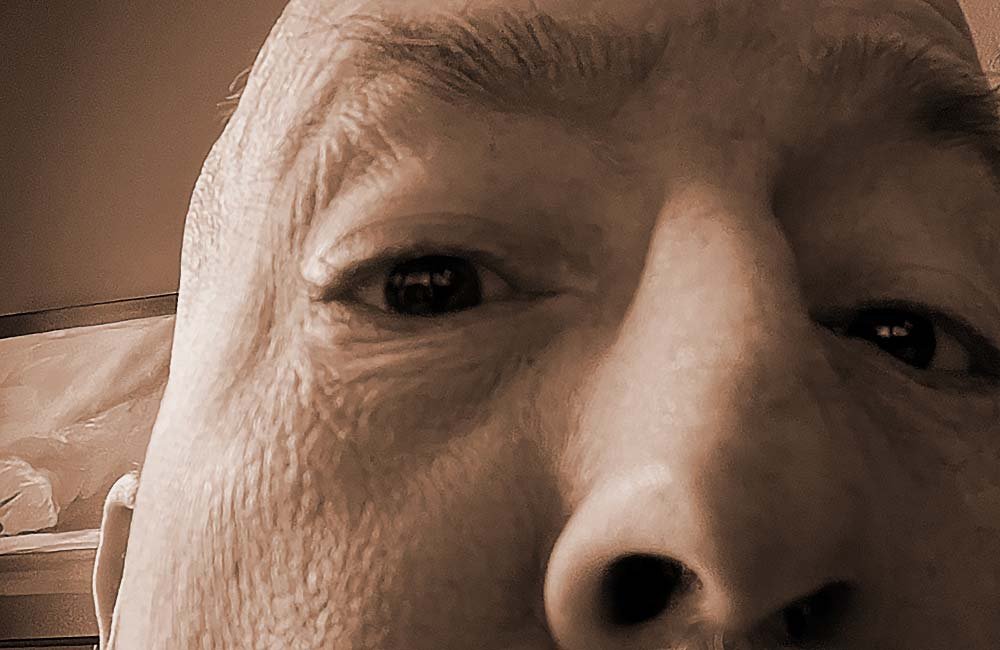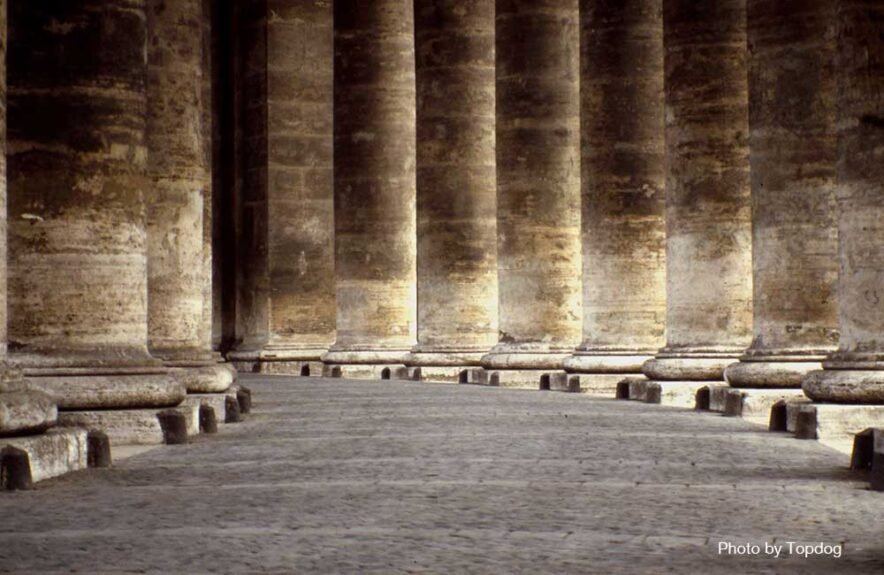One Sunday in 2002, The Missus and I sat in church on a sunny Spring day. At the time, the Catholic Church was embroiled in another priest sex scandal. During the homily a monsignor (more than a priest, less than a bishop) implored us to keep giving our money to the Church, despite these horrific incidents. When Mass was finished, we got in our car and I sat silent for a minute, then turned to The Missus and said,
“So it’s all about money with them is it? Fair enough. I’m never giving them another dime.”
She agreed.
“And what’s more,” I added, “this is all the fault of the bishops. They hide perverts from the police, shuffling them from parish to parish and paying hush money to keep the victims quiet. Then they have the balls to hold their hands out for more money! These bishops aren’t men of God. They’re mobsters, and because they perpetuate this by their actions, they’re worse than the abusers themselves.”
My questioning the actions and intentions of Church leadership, while alone not enough to make me lose faith, did prompt me to seek answers to other, more fundamental questions, like "Where does the authority of the Church and bishop come from and why did they fail so badly in this case?"
In my search I found the Catholic Church requires us to submit our will and morals to the Bishop, because he is invested with the Holy Spirit and therefore is our leader in faith and morality.
These criminals in pointy hats were our moral leaders!
Well that pissed me off, and it made me look at my Church with a cold, baleful, unblinking gaze. From that point on, the Church and Bishops would no longer be given the benefit of the doubt. They had to prove themselves worthy of loyalty.
I eventually came to believe that Jesus never founded the Catholic Church, or any church for that matter. While this may not be big deal, it was a turning point for me because it showed me just how much of Catholicism I had accepted uncritically. After that "revelation", I began to question everything from the teaching authority of the Church, to major dogmas (Mary, the Trinity, the Holy Spirit, etc.). My research wasn't based on just non-catholic sources, either, I read many catholic apologetical works along with the Catechism, and I believe I weighed all the information fairly before coming to the decision that, for me, Catholicism no longer made sense; it no longer had relevance for me. And, more pointedly, the bishops no longer deserved my loyalty.
Upon losing my faith in the Church, I began questioning my belief in Christianity using the same methods of researching both sides. Again, the result was a loss of faith in Jesus and the myths and traditions built up around him. In fact, I’ve come to think it’s entirely possible (maybe even probable) that Jesus never existed, but that’s a topic for another day.
What followed was the inevitable examination of the question of God. Of course it all boiled down to the big question: Does God Exist? It took a lot of introspection, and quite a bit of research examining the philosophical arguments for and against the existence of God. The search through philosophy was inconclusive, because as a dumb artist, I didn’t consider myself sufficiently familiar with the arguments to say with certainty which side made the best case. I then considered as much objective, empirical knowledge as my puny artist brain could manage, and it was there that I found little support for the existence of anything beyond the known universe. Did that answer the question? Not really, but it did leave me with enough information to say that, while I could not know with 100% certainty whether God exists or not, the fact that God, if he existed at all, was so well hidden, his interactions with humanity (answering prayers, miracles, etc.) were so well disguised as to be indistinguishable from mere chance, and the universe seemed to appear just as it would if it had not been designed, that it was just as if he didn’t exist at all. In the end, it seemed that God, if he existed, had made himself irrelevant.
So, I had to ask myself, why do so many people believe?
Eventually, I came to understand there are at least two big reasons for religious belief, and neither are very objective. First, many people believe because it is what they were taught as children. They have an underlying assumption of faith which goes largely unquestioned and unchallenged. This is not to say such people are non-thinking automatons going to church and believing simply out of habit. I suspect they have good reasons to accept the faith they’ve been given and see no reason to challenge it.
Second, other people have faith because of what they perceive as personal encounters with the Divine. Reason and logic may come into play in attempts to explain to others what is in reality a highly subjective experience. If a person believes that God has been revealed to them in some miraculous way, it becomes nearly impossible to convince them otherwise, even if reasonable explanations are at hand. But personal encounters with God are mostly useful only to the person who experiences them, and don’t often translate into good reasons for others to believe.
Aside from these highly personal and subjective events, it is impossible, in my view, to "prove" in an objective way that there is conscious existence beyond death, that the soul is real, or that God exists. One first needs faith to believe such things.
All the decisions to believe in God, Christ, the Church etc. must therefore be based on faith. I was forced to conclude that I no longer had that faith (if indeed I ever had it in the first place), and as such it would be hypocritical for me to remain a believer.
In that moment I knew I was an atheist.
I don't claim to "know" or even "believe" that God does not exist. I only claim to have no belief in his existence based on what I know and have learned about the world.
I do not regret leaving the Church, Jesus, and God. This world and the universe are subjects of great wonder and curiosity. Some believers would ask whether life is still amazing given it has no meaning other than this brief existence, and my answer is that life is even more amazing when I have the freedom to make it meaningful in the way that I choose. And it’s even more precious to me now that I know it is the only life I'll ever have.
As for the subject of religion and belief, they remain objects of deep fascination. This is why, over twenty years since giving up belief, I still feel compelled to read, think and write about such topics, but now from a different perspective.
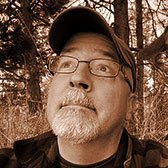
About the Author
Topdog is Steve Merryman, a retired graphic designer, illustrator, and unrepentant asshole. Steve can usually be found working on a portrait commission or some other artwork. Steve fills his days by painting, writing, shootin' guns, cuttin' trees, hiking with his dogs, and savoring a beer or two, all while searching for the perfect cheeseburger. He studiously avoids social media and is occasionally without pants.
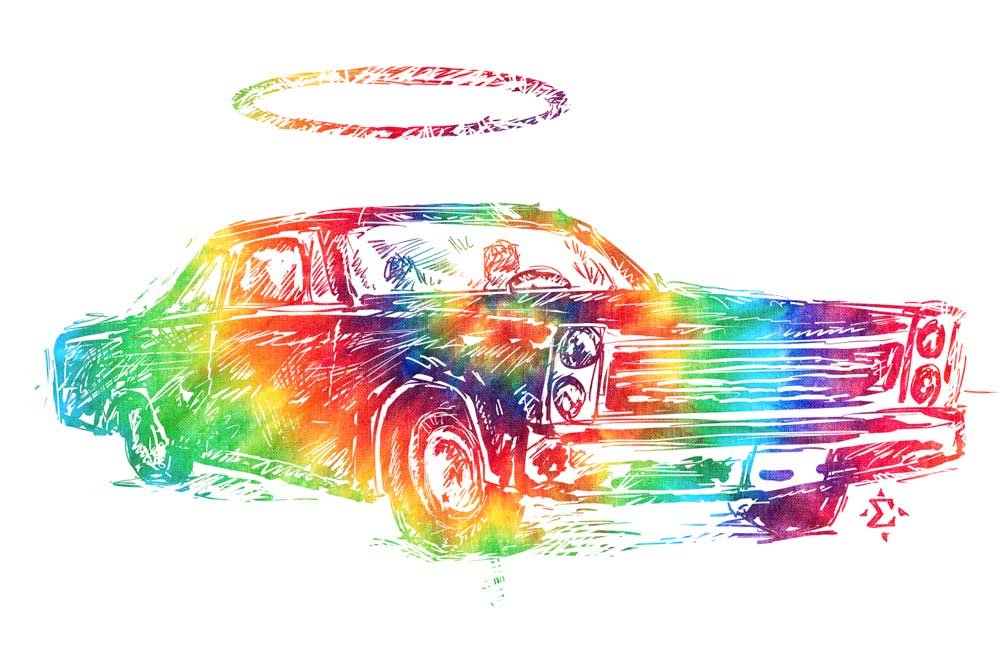
Last Chance Cafe

Rocks and Snow graphite series

Scout
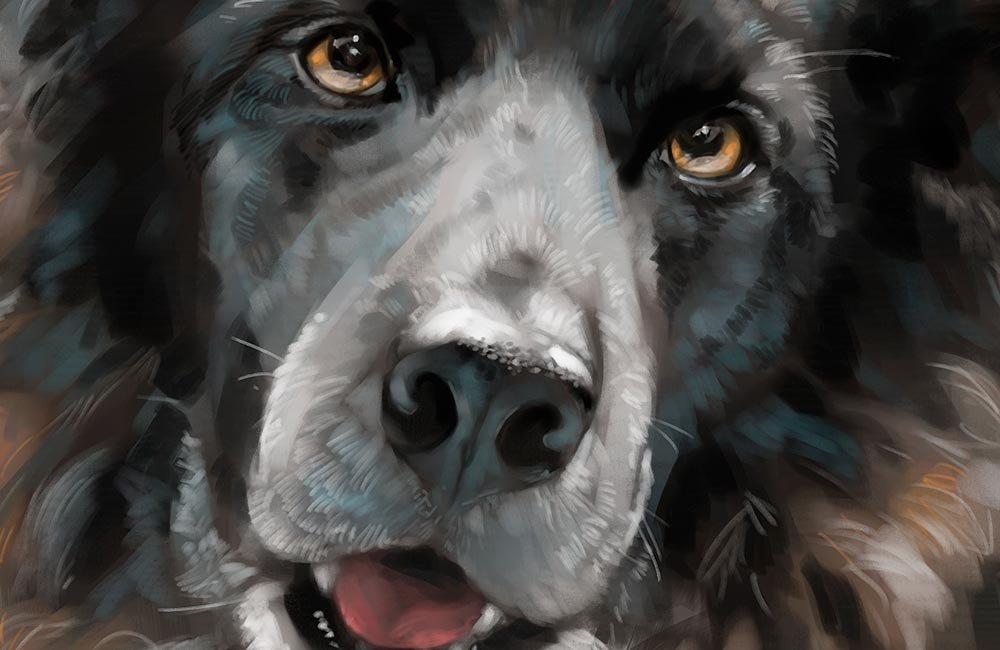
Seamus Growls
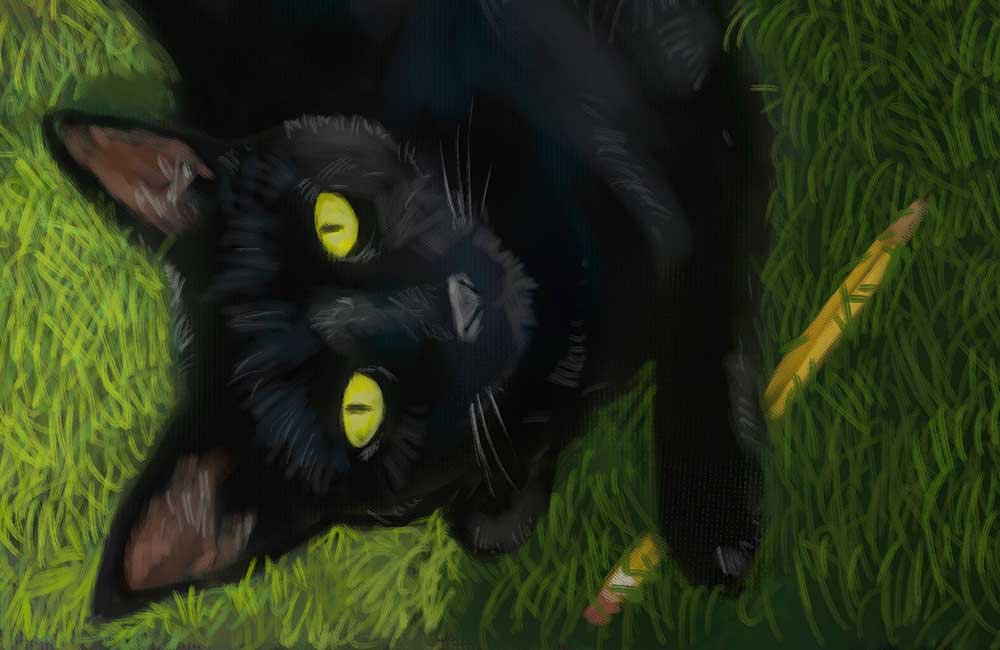
Vasquez & Ripley
